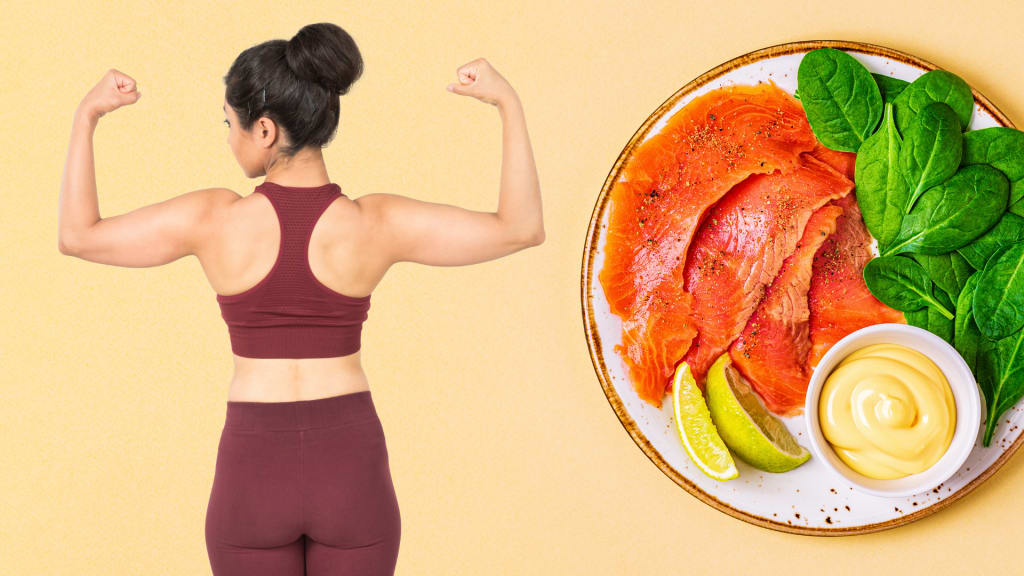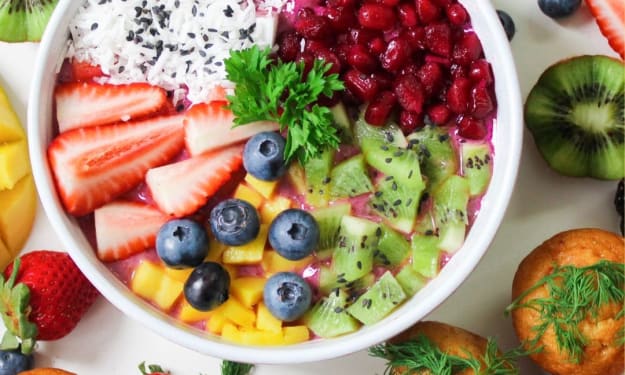Is it possible to gain muscles on a ketogenic diet?
5 Ways to Gain Muscle on a Ketogenic Diet

The ketogenic diet, or keto diet, has been on the rise in recent years as more and more people use it to lose weight and improve their health.
While following this diet can help you get your health back on track, many people find that they don't have enough energy to work out.
But don't worry; if you're looking to build muscle while sticking to the keto diet, there are some tips and tricks you can use to make it happen!
In this article, we'll look at five of the best ways to gain muscle on keto!
1) Carbohydrate Intake
A low-carb diet is not just for weight loss.
It's also a necessity if you're serious about building muscle.
According to Santisteban, if you want to gain mass, eating 20 or more grams of carbs per day is unhealthy.
When your body can access glucose easily from food sources, and your muscles are whole and glycogen-filled, he says that your body won't break down muscle tissue as readily.
Studies have shown an inverse relationship between muscle protein synthesis and blood glucose levels: when blood glucose levels are high, protein synthesis will be lower; when blood glucose levels are low, protein synthesis will be higher.
2) Eat Enough Protein
The key to gaining muscle without putting on too much fat is eating enough protein, which boosts muscle-building and satiety hormones while reducing appetite.
Research shows that an egg breakfast increases your odds of staying full and focused throughout the morning.
A study published in Obesity Facts showed that people who ate eggs for breakfast consumed 330 fewer calories during their next meal than those who had bagels—while adding six more grams of protein.
In another study published in the International Journal of Obesity, overweight women who ate eggs for breakfast increased their weight loss by 65 percent.
Because egg yolks are rich in choline—which helps turn off hunger hormones—eggs are one of many good sources of protein found within foods you can eat when following a keto diet.
Click To Watch The Complete Video Guide For Free
3) Get Enough Calories
It's hard to gain muscle without consuming enough calories. After all, your body needs food and nutrients to build new tissue—and it needs energy calories for all of its processes.
If you're trying keto for weight loss and seeing no results after two weeks of consistent dieting, you may want to bump up your calorie intake slightly.
Instead of limiting yourself to just 20 grams, aim for 22–25% of your total daily fats. Again, don't go overboard with protein; 3–4 ounces should be plenty, depending on your size and activity level.
By increasing your caloric intake, you'll have more fuel available for training and recovery.
Plus, if you're still hungry or struggle with cravings later in the day, that extra fat will help keep you satisfied until dinner time.
4) Consume More Fat
When following a ketogenic diet, it's essential to pay attention to your macronutrient breakdown.
Often people don't get enough fat, but that doesn't mean you should overdo it with foods high in saturated fats.
It would help if you were getting about 20% of your calories from healthy fat sources such as eggs, coconut oil, salmon, avocado, and olive oil.
You can also eat healthfully by opting for fats like grass-fed butter or ghee, which have been shown to decrease the risk of heart disease when consumed in moderation.
Get lots of heart-healthy unsaturated fats from nuts and seeds—such as walnuts and chia seeds—and fatty fish like salmon and tuna.
Also, include plenty of omega-3 fatty acids from oily fish and supplements.
Don't worry about cholesterol; most Americans have much more than they need.
A balanced intake is key—if you eat too little fat, your body will break down muscle tissue for energy.
If you want to build muscle, consider adding 1g of protein per pound of body weight (about half a gram per kilogram).
Research shows that higher protein intakes are associated with greater muscle mass and strength gains.
Protein needs vary based on activity level, age, and gender; use our calculator to determine how much protein is suitable for you.
5) Take Supplements
One of the most critical aspects of building muscle is eating enough calories and protein.
But if you're looking to get a little more out of your diet, it might be time to consider supplements.
Protein powder and weight gainers are made explicitly for bodybuilders—though there are good options for non-bodybuilders as well—and offer an easy way to increase calorie and macronutrient intake when you're short on time.
Weight gainers have been shown particularly effective at helping build muscle when combined with resistance training, as they provide both protein and simple carbohydrates that enhance workout performance.
In addition, weight gainers typically include calcium and vitamin D (which can help promote bone health) in their formulations.
Disclaimer: This post contains affiliate links. If you use these links to buy something, we may earn a commission. Thanks for your interest.
About the Creator
Happy Life Official
I write about relationships, health, happiness, and much more to ease your life routine.






Comments
There are no comments for this story
Be the first to respond and start the conversation.